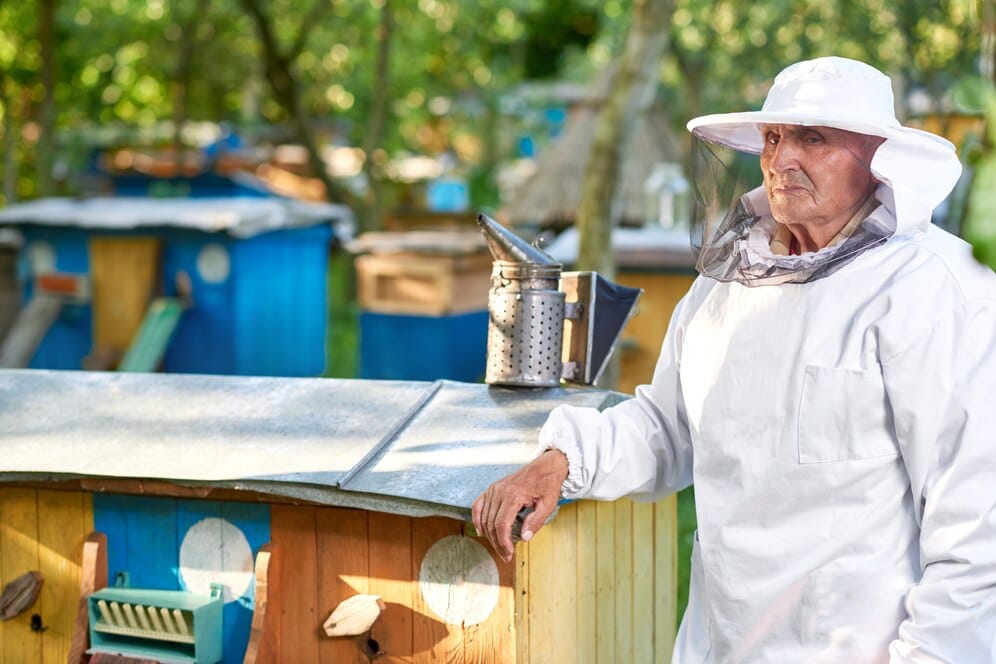Urban Beekeeping: The buzz on city hives and local honey
Urban beekeeping is buzzing with popularity as city dwellers embrace the benefits of cultivating beehives in urban environments and enjoying the sweet rewards of local honey.


Urban beekeeping is buzzing with popularity as city dwellers embrace the benefits of cultivating beehives in urban environments and enjoying the sweet rewards of local honey. Despite the concrete jungle surroundings, urban areas provide unique opportunities for beekeepers to nurture honeybee colonies and support biodiversity in cities. In this guide, we'll explore the fascinating world of urban beekeeping, the benefits it brings to both bees and humans, and how you can get started with your own city hive.
1. Supporting Pollinators in Urban Environments
Urban beekeeping plays a crucial role in supporting pollinators and promoting biodiversity in cities. Honeybees are essential pollinators that play a vital role in the reproduction of many plant species, including fruits, vegetables, and flowers. By maintaining beehives in urban areas, beekeepers help ensure the health and survival of honeybee populations while contributing to the pollination of urban gardens, parks, and green spaces.
2. Producing Local Honey
One of the most rewarding aspects of urban beekeeping is the opportunity to harvest delicious, locally-produced honey. Urban environments offer a diverse range of nectar sources for honeybees, including flowering trees, gardens, and urban flora. As a result, urban honey often has a unique flavor profile that reflects the local flora and environment. Producing and consuming local honey not only supports sustainable agriculture but also connects urban residents to their local environment and food system.
3. Promoting Environmental Education and Awareness
Urban beekeeping provides valuable opportunities for environmental education and awareness, allowing city residents to learn about the importance of pollinators, biodiversity, and sustainable agriculture. Beekeeping workshops, educational programs, and community events can engage residents of all ages in learning about bees, honey production, and the interconnectedness of ecosystems in urban environments. By raising awareness about the plight of pollinators and the importance of habitat conservation, urban beekeepers can inspire positive action and stewardship within their communities.
4. Improving Urban Green Spaces
Bees play a critical role in pollinating urban gardens, parks, and green spaces, contributing to the health and vitality of urban ecosystems. By maintaining beehives in urban areas, beekeepers help ensure the continued pollination of flowering plants, trees, and crops, which in turn supports the growth of urban green spaces and enhances biodiversity. Urban beekeeping can also foster partnerships with local governments, community organizations, and businesses to promote the creation and maintenance of bee-friendly habitats in cities.
5. Getting Started with Urban Beekeeping
If you're interested in getting started with urban beekeeping, here are some steps to consider:
- Educate Yourself: Learn about beekeeping practices, local regulations, and safety precautions before starting your own hive. Attend beekeeping workshops, read books and articles, and seek guidance from experienced beekeepers in your area.
- Obtain Equipment: Invest in the necessary beekeeping equipment, including beehives, protective clothing, hive tools, and smoker. Choose equipment that is suitable for urban environments and complies with local regulations.
- Choose a Location: Select a suitable location for your beehive, taking into account factors such as sunlight, shelter, and proximity to forage sources. Consider partnering with local businesses, community gardens, or rooftop gardens to host your hive.
- Acquire Bees: Purchase bees from a reputable supplier or consider capturing a swarm from a local beekeeper. Introduce the bees to their new hive and monitor their health and behavior regularly.
- Manage Your Hive: Practice regular hive inspections, monitor for signs of disease or pests, and provide appropriate care and maintenance for your bees. Harvest honey responsibly and follow sustainable beekeeping practices to ensure the health and well-being of your hive.
Conclusion
Urban beekeeping offers a wealth of benefits for both bees and humans, from supporting pollinators and promoting biodiversity to producing delicious local honey and fostering environmental education. By embracing urban beekeeping, city dwellers can play a vital role in protecting pollinators, enhancing urban green spaces, and building resilient and sustainable communities. So, grab your beekeeping gear, and join the buzz of urban beekeeping in your city today!